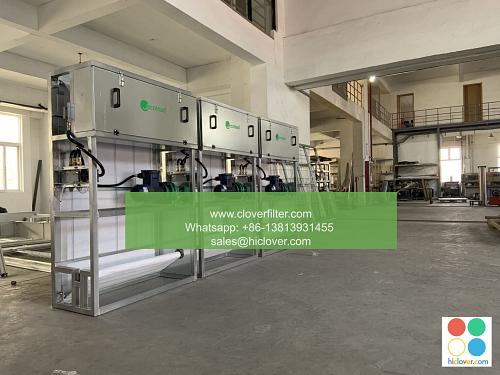Air Filter Regulations and Training

Air filter regulations and training are crucial in various industries, including heating, ventilation, and air conditioning (HVAC), industrial process control, and healthcare facilities. The purpose of air filters is to remove contaminants and pollutants from the air, providing a clean and healthy environment for occupants. In this article, we will discuss the importance of air filter regulations and training, highlighting various application areas and key performance indicators (KPIs).
Air Filter Regulations
Air filter regulations vary by country and industry, but most follow similar guidelines. The ASHRAE (American Society of Heating, Refrigerating, and Air-Conditioning Engineers) and ISO (International Organization for Standardization) are two prominent organizations that establish standards for air filter performance and testing. These regulations ensure that air filters meet minimum requirements for particulate matter (PM) removal, airflow resistance, and durability.
Training and Certification
Proper training and certification are essential for individuals working with air filters. Filter maintenance and replacement requires specialized knowledge and skills to ensure that filters are installed, operated, and maintained correctly. Certification programs, such as those offered by the National Air Filtration Association (NAFA), provide a framework for training and assessing individuals’ competence in air filter selection, installation, and maintenance.
Application Areas
Air filter regulations and training are applicable in various industries, including:
- Commercial HVAC systems: Air filters play a critical role in maintaining indoor air quality in commercial buildings, such as offices, schools, and hospitals.
- Industrial process control: Air filters are used to remove contaminants and pollutants from the air in industrial processes, such as chemical processing, food processing, and pharmaceutical manufacturing.
- Healthcare facilities: Air filters are essential in healthcare facilities to prevent the spread of infectious diseases and maintain a clean and healthy environment for patients and staff.
- Residential HVAC systems: Air filters are used in residential HVAC systems to improve indoor air quality and reduce the risk of respiratory problems.
Key Performance Indicators (KPIs)
To ensure that air filters are performing effectively, several KPIs must be monitored, including:
- Filter efficiency: The ability of the filter to remove particulate matter and other contaminants from the air.
- Pressure drop: The pressure difference across the filter, which affects airflow and energy consumption.
- Filter lifespan: The length of time the filter can operate effectively before requiring replacement.
- Air quality: The level of contaminants and pollutants in the air, which affects indoor air quality and occupant health.
Conclusion
Air filter regulations and training are essential in ensuring that air filters are selected, installed, and maintained correctly. By following established regulations and guidelines, individuals can ensure that air filters perform effectively, providing a clean and healthy environment for occupants. Whether in commercial HVAC systems, industrial process control, healthcare facilities, or residential HVAC systems, air filter regulations and training are critical in maintaining indoor air quality and preventing the spread of infectious diseases. You haven’t provided a prompt or question for me to respond to. Please go ahead and ask your question, and I’ll do my best to provide a helpful and direct answer.

